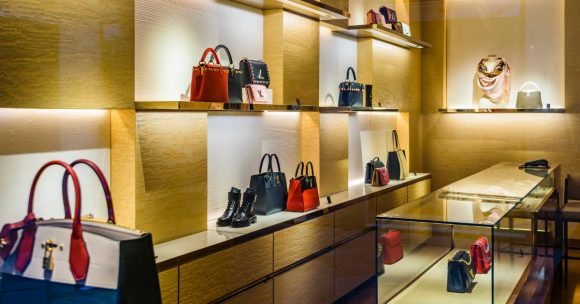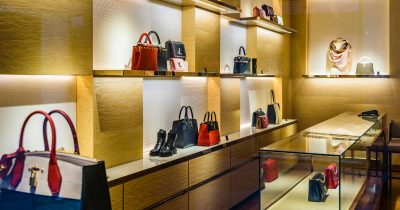We see shopping, in general, changing rapidly – from autonomous mobile robots to groceries being sent directly to a customer’s door with a drone and retail companies are thinking out of the box to get items to customers fast. Locate2u takes a look at how luxury retailers can stay ahead in 2024.
The e-commerce space is changing the way retailers are doing business. Luxury brands would benefit from online purchases as more and more consumers are shopping online.
Here’s a scenario: A Gucci loyalist purchases products a few times a week – this is a shopper who is used to luxury. The company has just reinvented its online shopping portal. Previously, customers had to drive across town through heavy traffic just to view the latest fashion. Now, the customer can order online with ease without leaving their home.
E-commerce game changer for retail
Imagine the revenue Gucci earns by having a user-friendly online shopping portal. E-commerce Insights emphasizes that previously, luxury brands relied on “offline” sales, but that’s now changing, and online sales are rising.
The luxury goods market is adapting. Online sales have become valuable. Going forward, online shopping will remain relevant in the luxury goods market.
Retailer should also note what other sectors are witnessing in the business world. Logistics provider DHL recently released a report pointing out that the e-commerce industry remains strong.
ALSO READ: Data-driven e-commerce: Understanding your customers
Retail in 2025 and beyond
Expert Market Research estimates the global luxury goods market is expected to grow at an annual compound growth rate of 4.4% in the next eight years. “The increasing inclination of the younger population towards expensive perfumes and cosmetics to enhance appearance and boost confidence is likely to provide impetus to the market,” reads the report.
The report adds that high-end retailers are focusing on expanding their online presence amidst changing shopping habits and are also leveraging advanced technologies to improve customer shopping experience.
Besides this, retailers would also want to catch on to a trend – customers like using sustainable delivery options. We see this in a study by Stuart that shows consumer priorities as shoppers say they are willing to abandon retailers who don’t prioritize sustainable delivery. Even a luxury brand can stay in the game by going the sustainability route.
Brands can even shift their focus to new markets – to consumers who aspire to purchase luxury products; as Retail Insider says: “In 2025 and beyond, luxury will benefit from the solid fundamentals of a growing global middle class who aspire to the lifestyle that luxury products confer and the self-expression that luxury brands provide.”
NOW READ: Shein and Temu shakeup: Australian retailers battle for survival
About the author
Sharl is a qualified journalist. He has over 10 years’ experience in the media industry, including positions as an editor of a magazine and Business Editor of a daily newspaper. Sharl also has experience in logistics specifically operations, where he worked with global food aid organisations distributing food into Africa. Sharl enjoys writing business stories and human interest pieces.











